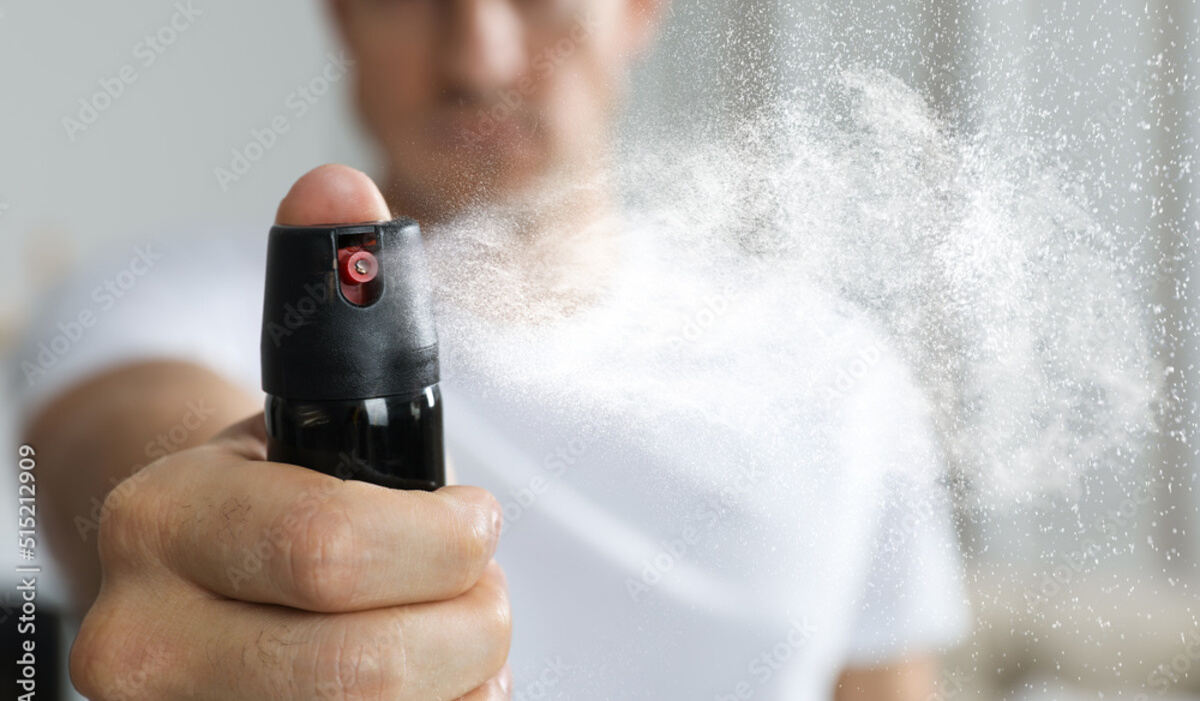Pepper spray, a popular self-defense tool, has gained immense popularity in recent years due to its effectiveness and ease of use. However, apart from its well-known ability to incapacitate an attacker temporarily, many wonder about its distinct scent and how it affects the user and the assailant. In this article, we delve deep into the question, “What does pepper spray smell like?” and provide a comprehensive understanding of this pungent but powerful defense tool.
What Does Pepper Spray Smell Like? Understanding the Aroma
Pepper spray smells like a strong, burning pepper. It has a sharp, acrid odor that can be very irritating to the nose and throat. The smell is caused by the active ingredient in pepper spray, which is capsaicin. Capsaicin is the chemical that gives chili peppers their heat. When it comes into contact with the skin or eyes, capsaicin can cause a burning sensation, redness, and swelling.
The smell of pepper spray can also be described as being similar to tear gas. Tear gas is another type of irritant that is used as a weapon or for crowd control. Tear gas is made from a different chemical than pepper spray, but it also has a strong, unpleasant odor.
If you have ever been around pepper spray or tear gas, you know that the smell is very distinctive. It is a smell that you will never forget. If you smell pepper spray, it is important to get away from the area as quickly as possible. The effects of pepper spray can be very unpleasant, and they can last for several hours.
The Components of Pepper Spray and Their Impact
Pepper spray is a potent blend of various chemicals, carefully formulated to provide maximum effectiveness. Some of the essential components include:
- Capsaicinoids: As mentioned earlier, capsaicinoids are active compounds extracted from chili peppers. These are responsible for the inflammatory effects on the eyes, skin, and respiratory system.
- Propellant: The propellant is the aerosol component that enables the pepper spray to be discharged forcefully from the canister. Common propellants include nitrogen or carbon dioxide.
- Solvents: Solvents help dissolve and mix the ingredients effectively, ensuring a homogenous solution for consistent results.
- UV Dye: Many pepper sprays also contain UV dye, which marks the assailant, making it easier for law enforcement to identify and apprehend them later.
Does the Smell Vary Between Different Pepper Sprays?
Yes, the smell of pepper spray can vary depending on the manufacturer and the specific formula used. Some brands may add fragrance or masking agents to mitigate the intensity of the natural pepper scent. However, it is crucial to note that these additives do not reduce the effectiveness of the spray.
How Does the Smell of Pepper Spray Affect Attackers?
When an attacker comes into contact with pepper spray, the pungent scent overwhelms their senses, causing temporary disorientation and intense discomfort. The immediate response includes involuntary closure of the eyes, difficulty breathing, and an intense burning sensation on the skin. This incapacitates the attacker, allowing the potential victim to escape or seek help.
The Impact of Pepper Spray Smell on Users
While the scent of pepper spray can be overwhelming for attackers, users may also experience its effects to some extent, especially if used indoors or in confined spaces. However, the impact on the user is generally less severe than on the assailant.
How to use pepper spray safely and effectively?
Pepper spray is a highly effective self-defense tool, but it must be used responsibly to avoid unintended consequences. Here are some essential tips for using pepper spray safely and effectively:
Understanding the Proper Use of Pepper Spray
It’s crucial to understand how to use pepper spray correctly. Before carrying it for personal safety, familiarize yourself with the product’s instructions and safety guidelines. This will ensure that you use it effectively when the need arises.
Aiming and Dispensing
When using pepper spray, aim for the assailant’s face, particularly the eyes and nose, as these areas are most sensitive to the effects of the spray. To maximize its impact, dispense the spray in short bursts, ensuring you maintain a safe distance from the attacker.
Taking Precautions Indoors
If you find yourself in an indoor situation, be cautious when using pepper spray. Ensure adequate ventilation to dissipate the pungent odor and avoid inhaling the particles yourself.
Practicing Self-Defense Scenarios
Regularly practice self-defense scenarios with inert pepper spray canisters to build muscle memory and enhance your ability to respond effectively during a real-life emergency.
What to do after using pepper spray?
After deploying pepper spray, both for training purposes or in a self-defense situation, it’s essential to take certain post-exposure measures:
Move to a Safe Location
Immediately move to a safe location away from the assailant. Put as much distance between you and the attacker as possible to prevent further confrontation.
Avoid Touching Your Face
Avoid touching your face, especially your eyes, nose, and mouth, as residual pepper spray may be present on your hands.
Rinse Your Eyes and Face
If you accidentally expose yourself to pepper spray, quickly rinse your eyes and face with cold water. Use a mild soap to cleanse the affected areas, ensuring the spray is completely washed away.
Is it harmful to inhale pepper spray?
Inhaling pepper spray can cause discomfort, but it is generally not harmful to a healthy individual. The effects are temporary and subside as the particles disperse in the air. However, individuals with pre-existing respiratory conditions or asthma may experience more severe reactions and should avoid inhaling the spray whenever possible.
READ: What to Do If You Inhale Pepper Spray
FAQs
Does pepper spray expire?
Yes, pepper spray does have an expiration date. Most pepper spray canisters have a shelf life of 2 to 4 years. After the expiration date, the potency of the spray may diminish, and it may not be as effective.
Can pepper spray cause permanent damage?
In most cases, pepper spray causes temporary effects and does not cause permanent damage. However, individuals with pre-existing medical conditions should exercise caution and consult with a healthcare professional before using pepper spray.
Can pepper spray be used against animals?
Yes, pepper spray can be used as a deterrent against aggressive animals, but it should be specifically designed for animal use.
Is it legal to carry pepper spray?
Laws regarding pepper spray vary by country, state, and locality. Before carrying pepper spray, ensure you understand and comply with the legal regulations in your area.
Can I take pepper spray on a plane?
Pepper spray is considered a prohibited item by most airlines. It is not allowed in carry-on luggage and should be packed in checked baggage if permitted.
Can pepper spray be used for riot control?
Pepper spray is commonly used by law enforcement for riot control due to its ability to disperse crowds non-lethally.
Conclusion: Embracing Personal Safety with Pepper Spray
In conclusion, pepper spray is a powerful self-defense tool with a distinct and pungent smell. Its active ingredient, capsaicin, causes temporary incapacitation in attackers, providing a window for victims to escape and seek help. While the scent can also affect users, using pepper spray responsibly and effectively can significantly enhance personal safety.
Bliss Ferdinand is a resilient single mother and the founder of pepperspraymum.com, a blog dedicated to empowering women and promoting personal safety. With a passion for self-defense, Bliss shares her knowledge and experiences to help other mothers protect themselves and their families. Through her blog, she educates her readers about the effective use of pepper sprays, offering valuable insights, product reviews, and practical tips on staying safe in various situations. Bliss’s commitment to her community has inspired many women to take charge of their own security, making pepperspraymum.com a go-to resource for those seeking practical advice and peace of mind

